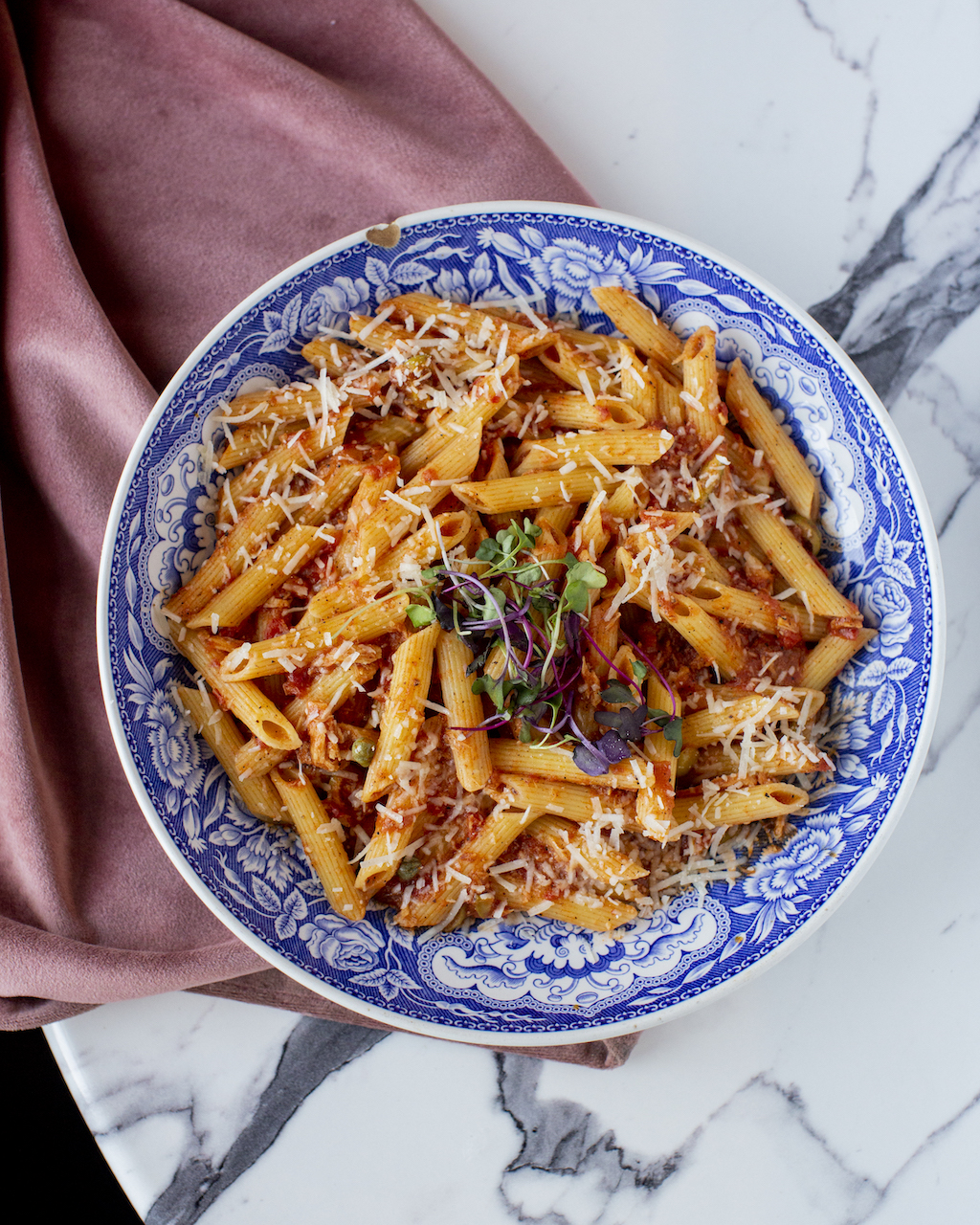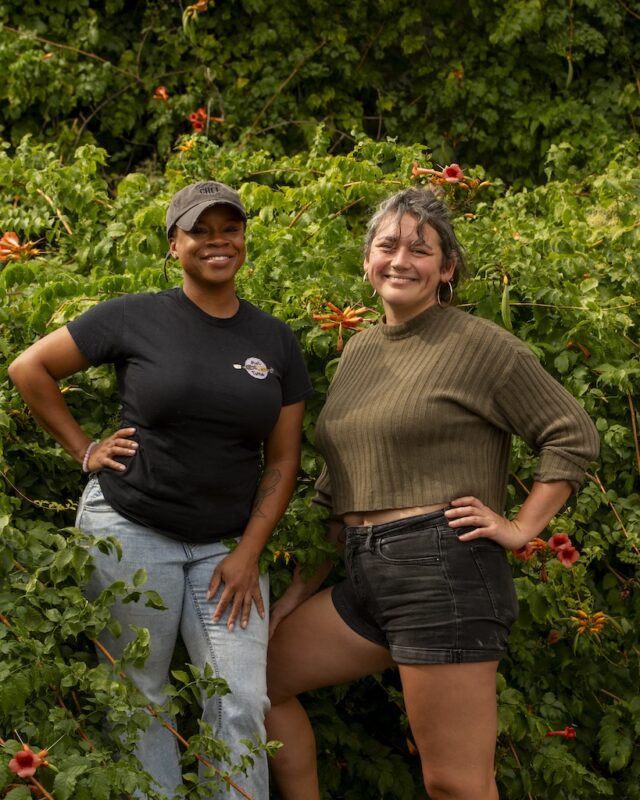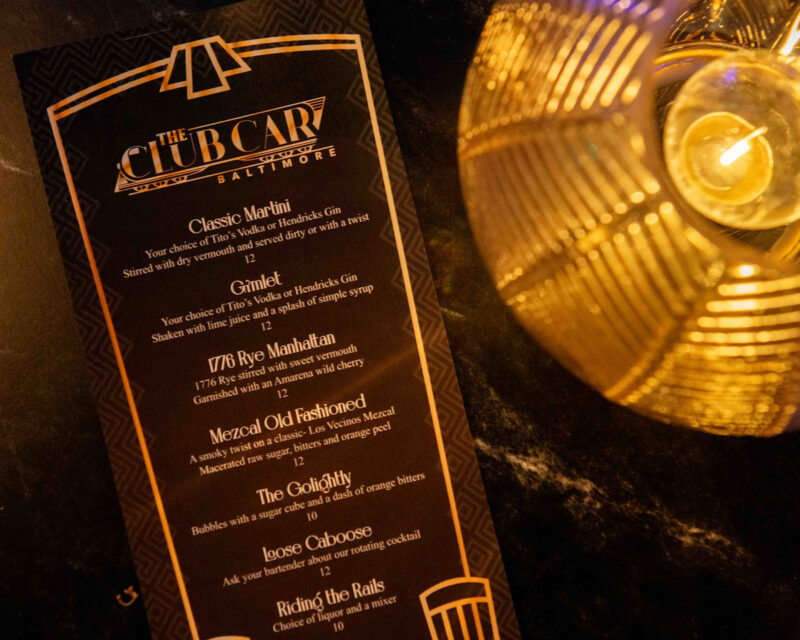Brendon and David moved back to Baltimore after a formative year in San Diego to be closer to Brendon’s family. They started Liliahna Luxury Catering, a bespoke and custom catering company, shortly after their return.
“We were very different in the catering world because we basically said we’ll do whatever you want,” David explains.
“We would even take family recipes that we would recreate,” Brendon elaborates.
“For those family recipes, it was always a really old aunt or grandma who can’t make it anymore, but [the family] still has the recipe,” David says.
Their unique and empathic approach to catering and outstanding food and service was recognized in 2020 when Brendon was named Top Chef of 2020 in Baltimore Magazine’s Readers’ Poll.
Chef Brendon and David have been decorated by Baltimore Magazine several times since 2020, including Best New Cafe in 2021 for Allora and both Allora and Vellagia’s are listed among the 2023 Top 50 Restaurants in Baltimore.
“James Beard is next,” Brendon says.
In 2022, Chef Brendon opened a consanguineous revival of his great grandfather’s Italian restaurant, Vellaggia’s. The original restaurant opened in 1937. It was owned and operated by Brendon’s family until 2006 when the building and the restaurant were sold to a developer for $1.8 million dollars.
“As time passed and they got more and more popular, they kept buying the next building over and the next building over and turned it into the largest restaurant space in Little Italy, which eventually turned into Vellaggia’s,” he shares.
The original Vellaggia’s, open for 69 years, was a long-standing institution in the small four-block neighborhood of Baltimore’s Little Italy. Since the family sold it almost twenty years ago, the building has changed hands and gone through its own revival. Today, Brendon and David’s Vellaggia’s operates out of a partition in Cross Street Market in Federal Hill—across the harbor from the original Little Italy location.
Baltimore City has favored food markets and mixed-use real estate for decades. This urban renewal plan divides the city up and sells it to savvy developers who understand that multi-use spaces mean no single point of failure. Stalls in high traffic food markets like R House, Cross Street Market, Whitehall Mill, Lexington Market, and the Hollins Market can offer lower barriers and greater access for budding entrepreneurs. They provide a built in audience, shared common space and amenities, and alleviate the financial burden of new construction and the never ending wait for buildout permits.
While the price of rent is comparable to single-occupancy storefronts, the stall model encourages new ideas to come to fruition rapidly. And of those, David has a few. “They [ideas] just come to me while I’m falling asleep. As I’m about to drift away, all these images start flashing in my head,” he explains.
“He has the idea, and I bring it to life,” Brendon chimes in.
“Some of the images are so strong that I can remember them the next day. I write them down, and suddenly we have this totally fleshed out idea with menu items, ideas where we can open in the city,” David shares.























